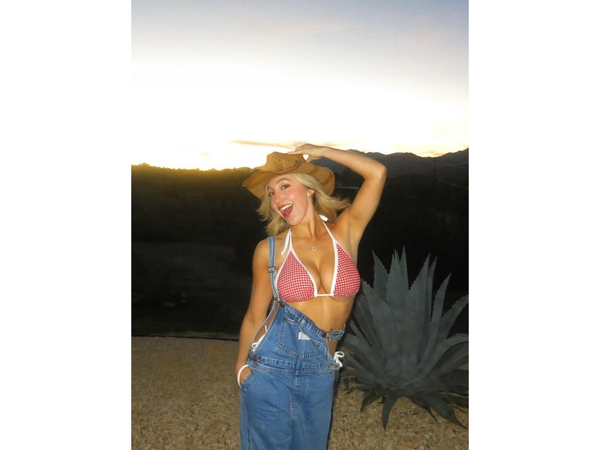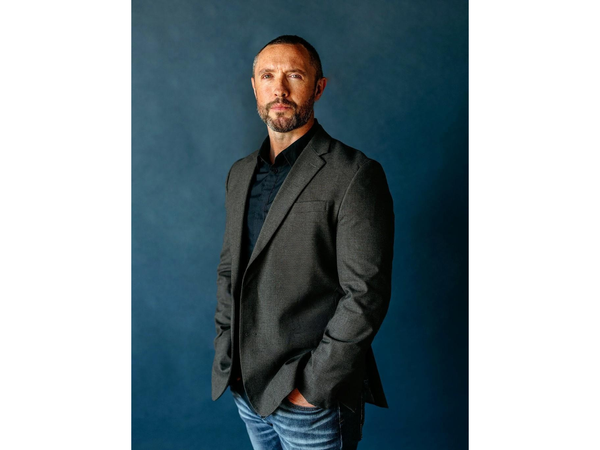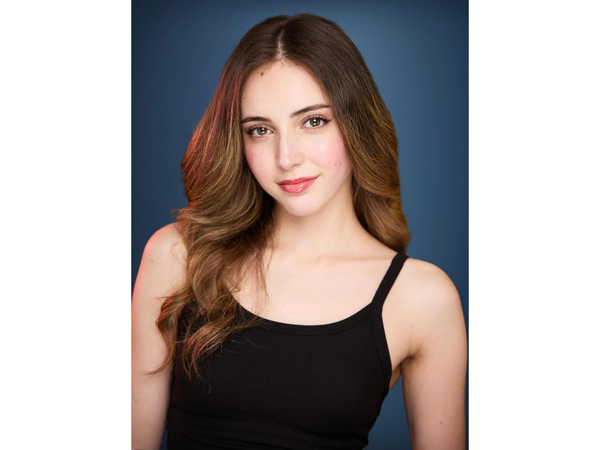SANDRO CAVAZZA TALKS ENEMY
"Tim did not value fame, and neither do I"
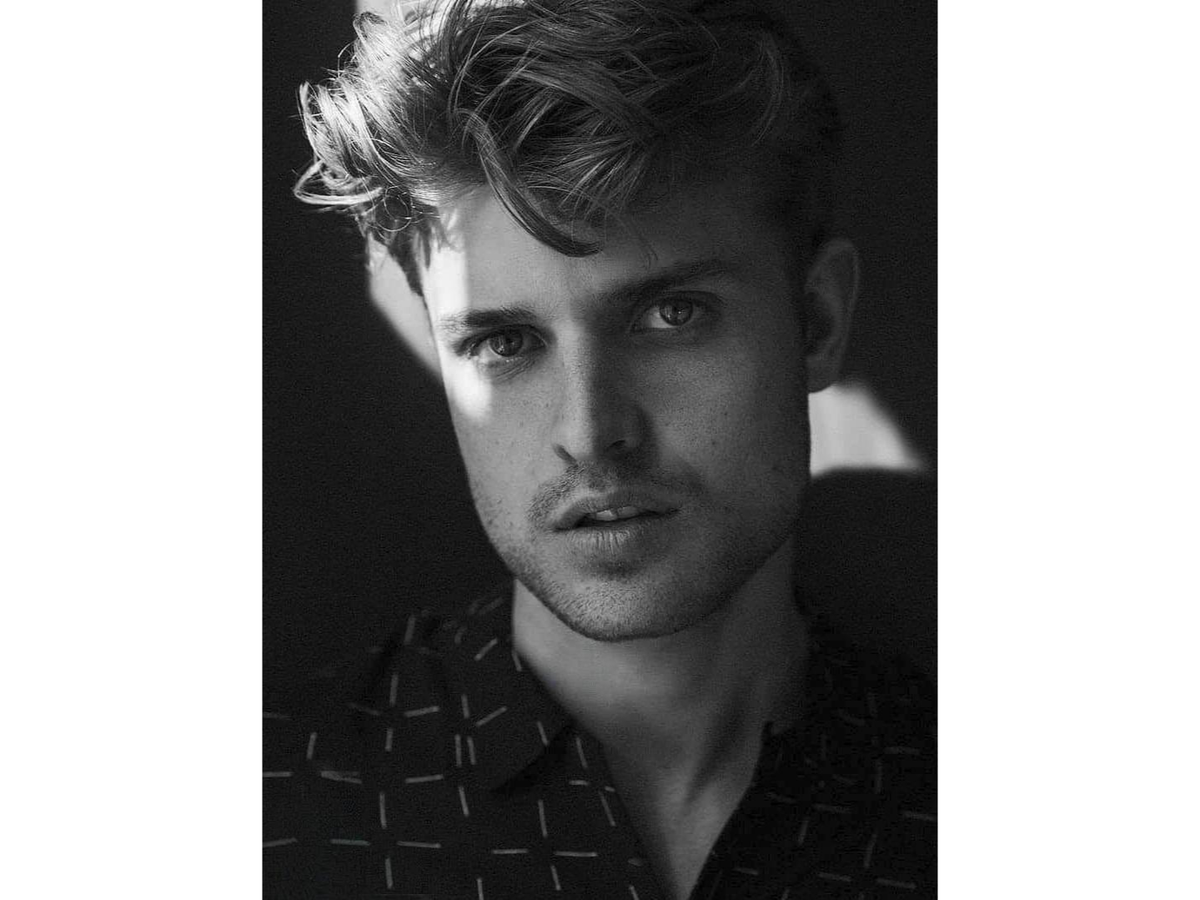
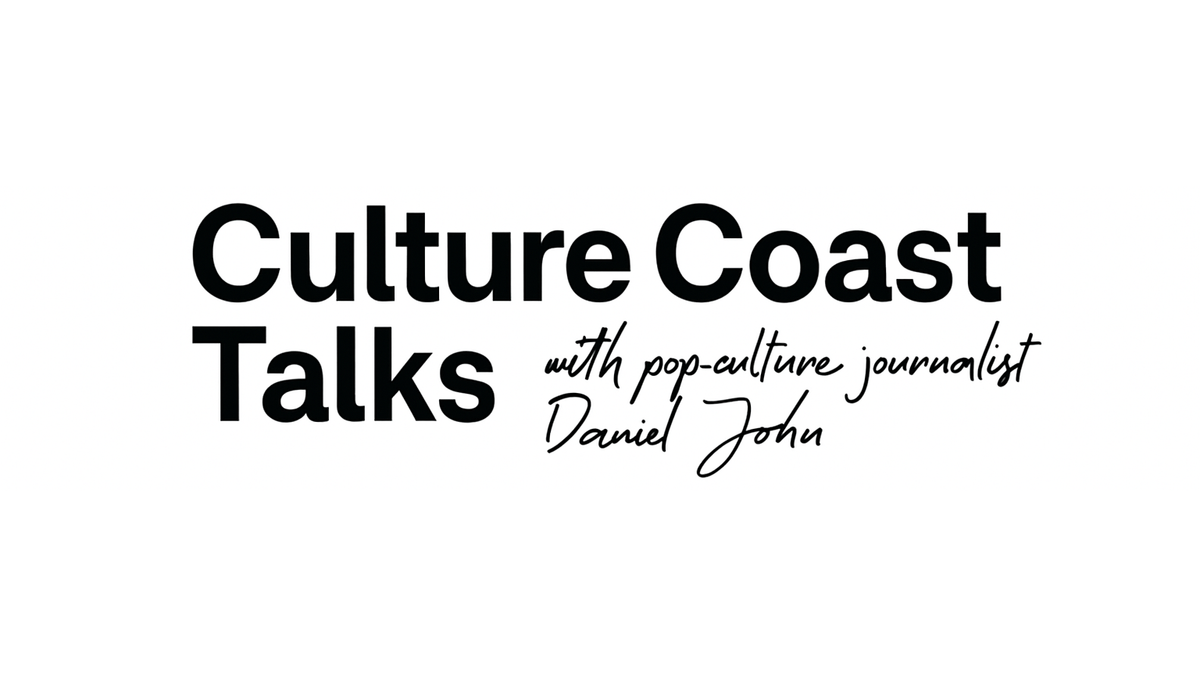
Through your work with Avicii, Kygo and Lost Frequencies you’ve become one of the world’s most recognizable voices, a big contrast to your sixteen-year-old self singing in the subway. When did you first realize people were interested in you, and was it a given then to give your voice a face?
Uh yeah, I guess it started with 'Gonna Love Ya' maybe, when people started noticing me as a singer. That was really the first thing I released that, well, not the first, but the first that really reached people. And that actually came out of songwriting. I hadn’t planned it like that, it wasn’t originally the idea that I was going to be an artist myself, it was just that I began writing songs, because that was what I felt I needed to do. It was the only thing I wanted to do, in life (laughs). So no, it wasn’t at all a given for me to give the voice, my voice, a face. That’s never really been my primary purpose in writing music. It’s never been about me being the one to front it you know, but that’s how it turned out, maybe thanks to the fact that I have a very, well, a distinctive voice, you could say.
You share your music with an enormous audience worldwide. Is it even possible to grasp how many?
No, it’s not! You can’t at all grasp how many people are listening. But it feels absolutely amazing. I mean, the hope every time you release something is that people will take it in, that it will find a place in someone’s life, that people can make it their own song, that I’ve made something that, yeah, means something to me but can also come to mean something completely different for someone else! (laughs) But you can’t really “wrap your head around” like 800–900 million streams, it’s just not possible. I’m not even the one who’s had the most (laughs) But after a couple hundred million it’s like your mind just goes blank, then it speeds up even faster in your head, and just understanding how many minutes a million streams equals, it’s actually insane (laughs). That’s so many minutes, so much time, so many button-clicks and situations that you get to be a part of through that. You really can’t take it in at all, but it’s such a crazy honor to actually experience that.
What did your path becoming an artist first look like?
I started singing when I was little. My first real “I can sing”-thought came when I was maybe six years old, and then I completely ignored it until I was maybe fourteen. That’s when I started singing in general music classes actually, and I had also sung at home with my guitar, because I started playing guitar when I was twelve. After that it was basically all music. That became my way to, I don’t know, “express” myself. At least halfway express myself. That, along with theater and film, and I was also very into poetry. I liked many different art forms, but singing in particular became my way. My way of expressing myself best, through lyrics and song. But I had never really combined the two until I was nineteen, and then it was like everything in my life suddenly just came together, in a good way! (laughs) All the paths crossed and it became, yeah, it became what I wanted to do with my life. My passion was realized.
How often do you sit down to write songs nowadays?
Honestly, way too rarely, right now I want to write all the time but touring takes up a lot of time and energy. That’s the problem. If I just have the time and energy, then I’m more than happy to write every day, but sometimes things come in between and then you make a little space and that can also be good to get some perspective. But I like to write as much as possible, just not on weekends. Never then. Never on the weekends.
Which of your songs are most personally meaningful?
Tough question. I do think my most autobiographical song is 'What Kind of Man'. I had thought a lot about this idea of “manhood.” I absolutely don’t define myself that way. It’s sometimes hard to relate to certain men, because what manhood “is” has been so stereotypical for so long, and when you grow up you have to find your own “definition” of it, and it was nice to put that into a lyric. It was a thought process I had while younger, especially while growing up, so that one is very personal! But then also 'Without You' means an enormous amount to me, as well as 'Happy Now', the songs with “Kyrre” means a lot to me too just because of what those songs have done for me, and what they meant to me when I wrote them and so on.
You’ve said that making music in a city like LA sometimes felt off, like a contrast, because there was such stark class divides. Now that you are back home, was that why you returned to Sweden?
Yeah, that was absolutely one of the reasons I moved back. I am, or at least I see myself as, an empathetic person. And I need to feel, in the creative process, that you’re doing something because you love it and because there are feelings in it, not because it’s “trendy” or “right now”, or because it will generate extreme amounts of money. Sometimes pop music does that, sure, but that’s not the primary purpose of writing a pop song, it’s not so that it can, I don’t know, buy me a house somewhere. The main purpose is that it should convey emotions for me and that was hard to do in LA. I felt they were chasing a different kind of dream there, than the one I am. My dream isn’t tied to that city. My dream is to be able to live off what I do. It’s something else to close your eyes to injustice, and to not take in other people empathetically. That felt very strange. The city has a lot of advantages, and there’s a lot happening that’s very exciting. But it just didn’t work for me to write there for that reason. And it’s more about that than about the injustice itself, I just can’t switch off the empathy button in me somehow. Like if I see a homeless person I want very much to help them, I do not want to walk past, and I very rarely did, even when I did not have much money living there, if I had fifty cents, I gave it.
You do tend to come off as a very positive and loving person?
(Laughs) Oh, I don’t know if that’s true, I think I do have the ability to see the positive in most things, and I try to be loving as a person, and I am very empathetic toward the people I have in my life. I think it’s partly how I grew up, and the Italian side of life, where there were sometimes difficult things but you see the light in them. And yeah, I think it also comes with time. I really couldn’t do that easily when I was growing up (laughs). But I think I’ve learned it.
The lyrics to 'Enemy' paint a picture of conflict which is unusual for you, what's the song about?
It is about two people who can’t really, or no, not two people, it’s one person who can’t let go of another, and that person goes out of their way to get them back. It’s almost like a glorification or a dramatic retelling of how people sometimes do anything, in desperation, to hold on to each other instead of letting go of something, which can be incredibly difficult. And that’s where it came from. It came very naturally. We found it as a perspective on love. But it’s not particularly autobiographical. And that was nice, that I didn’t have to be autobiographical in every single song that I write lyrics for.
Are your songs generally a bit more personal?
I’d say I’m very personal, or maybe I have been very personal rather, and I mix it a bit. They always become personal in some way, because I always write, I always write from myself. I am who I am, and there are always lines that I probably have some personal connection to, that come out in the first draft of my songs. But I try to have that in all my songs actually, so I don’t really know, I don’t think they have to be “more” personal. Because I’m not always trying to be personal but rather to make something that people can recognize themselves in. And those are thought processes I have sometimes had myself. So, yeah, maybe a bit, maybe a bit more personal.
If someone called you tomorrow and asked you to write a song with them, who would you not hang up on?
Oh yeah, Chris Martin, Coldplay, Ed Sheeran, and Kyrre, Kygo. Partly because he’s fantastically skilled, but also because I respect him so much as a person. No, but it’s insanely fun to write with him. So no, I wouldn’t hang up on him, If he called.
It’s been a year since Tim Bergling passed. Your first collaborations were more at a distance but later you began writing together in person. What do you think clicked between you, and what was it like creating all those unforgettable songs side by side with him?
Well, when we started writing, for me it was just, I had so much fun. It was playful, like how music should be, created in play, even when the lyrics were heavy there was still a sense of moving forward, of playfulness in it. Like positive, I don’t know, problem-solving in a way. You never get stuck, because there’s always a solution, always another angle. The music just keeps pushing things forward and the joy in that was and is enormous for me. And I think that’s what clicked. We were also pretty similar in values, I felt, about music, what was most important. Tim didn’t value “fame,” and neither do I. I don’t think that’s the point of my music, or of music at all. That’s another place we were alike. We’d never release something that didn’t sound good. We were both kind of semi-perfectionists in our own ways (laughs). But at the same time, with enormous respect for each other. I really felt that it was very mutual. It was beautiful. Really beautiful, in many ways. So I think that’s what it was that clicked between us, a lot of things, but above all that it was just fun. It was fun for us to write together.
How does he live on in the music you still make?
We had so many conversations about life in general. And about fame. What fame does. A lot of back-and-forth about life and the relationship to music, and I have been able to absorb all that. I carry it with me, always. What he continues to mean for me is so much, and the music I wrote with him is among the best I’ve ever written, melodically speaking, and to have worked with him, he was such an extremely special creative person, of course that’s something I’ve learned a lot from, and now I know exactly how it should feel when you have a really good session. That was also a big thing, when you click creatively with someone, when you feel everything is just “go, go, go,” and you can write seven songs in one single day. That’s when you understand, you know when it’s happening, and you know what you yourself need to do to make it happen. You need a lot of positivity, and energy in a session too, for it to be possible.
Have you been able to process the grief, the loss, in your songwriting?
No, it’s not something I write about. It’s something I process, for example, every time I play 'Without You', then it becomes an active, what should I call it, “memorial moment” for me in some way. Instead of a minute’s silence, it becomes a few really beautiful minutes where I think a lot about Tim. For a few minutes.
You also work quite a bit with Swedish pop now?
Yes, I have a Swedish side-project called Estraden that I’m part of, where I write songs. And it’s insanely fun to write in Swedish again, or well, not again really, to write in Swedish for the first time (laughs). And it feels fantastic too and the fact that it’s going as well as it is. It’s just amazing.
It strikes me now that on your spring tour you didn’t just play the big cities, but really went out, and up, into the country. You must have seen a lot of trees?
Touring really takes a lot of energy. And the result is that I have less left for songwriting. In that sense, I don’t like it (laughs). But I do really enjoy going out and meeting all the people who have listened to my music. That, I think, is absolutely amazing, and I really do not care where I play, as long as people have a great experience. I’m definitely not just a “big city person,” you know, I’ve had fantastic experiences up north, with the northern lights, for example Skellefteå was absolutely incredible and I love the people there. There’s so much respect and love you receive, it is truly a mutual joy. But yeah, touring can also be very draining as I said, but I’ve learned a lot from that too.
Do you, apart from the drain it can cause, like being on stage?
Both yes and no, it’s like with anything else, if I have lots of energy, if I’ve rested, if I’ve been myself, then I love being on stage. Then it’s the best thing I know. But if I have had a lot going on in life that sort of ruins the warm-up, the “pep”, then it’s not there. It doesn’t overshadow what’s happened to me that day, which can be difficult in general. But I really do enjoy being on stage, especially on those good days. And honestly, it also releases that feeling, you know, of having a bad day. Most of the time it releases it. But if there are other things, I do bring them with me on stage, because I am myself on stage, I don’t try to be some kind of “persona.”
Now only Stockholm remains. Will it be like the finale sort of?
It absolutely will. The demand for tickets has been huge, people writing to me privately wanting tickets, which isn’t so strange considering I’m from here but yeah, it’s been great to see people showing so much love here at home, so it will be really fun. So much fun to finish here, in Stockholm. You can expect me to play my latest single, premiere it now that I’ve released it. It’s the first time in Stockholm that people will actually have heard the song before the show. So it’ll also be a celebration.
How was it to perform for the Pope?
That was just absurd! (laughs) To see the Pope and the cardinals come riding into Malmö Arena in a golf cart, while the crowd was chanting “Papa Francisco”, it was like some kind of superstar moment. And that’s a relationship you don’t really have as a Swede, that kind of idol-like worship, which it becomes, in a way, toward a pope! That’s probably something you have to be a Catholic believer to really feel and I think I realized that then. He does seem like a very sympathetic pope though, I’d say, so it was a really big thing to be part of. And the event we played at was beautiful, with the union of the Protestant and Catholic churches, who set aside certain disagreements they’d had. Hopefully, now, they’re inseparable.
Will you sail anything this summer?
You can count on it (laughs) That’s all I think about as soon as the ice melts, “How will I find the time to rig the boat again?”, so yes, definitely. Maybe around the Koster Islands, or something like that. On the west coast anyway and it’ll be fantastic. And I’m maybe planning to do some diving too, in Sweden’s cold waters (laughs).

